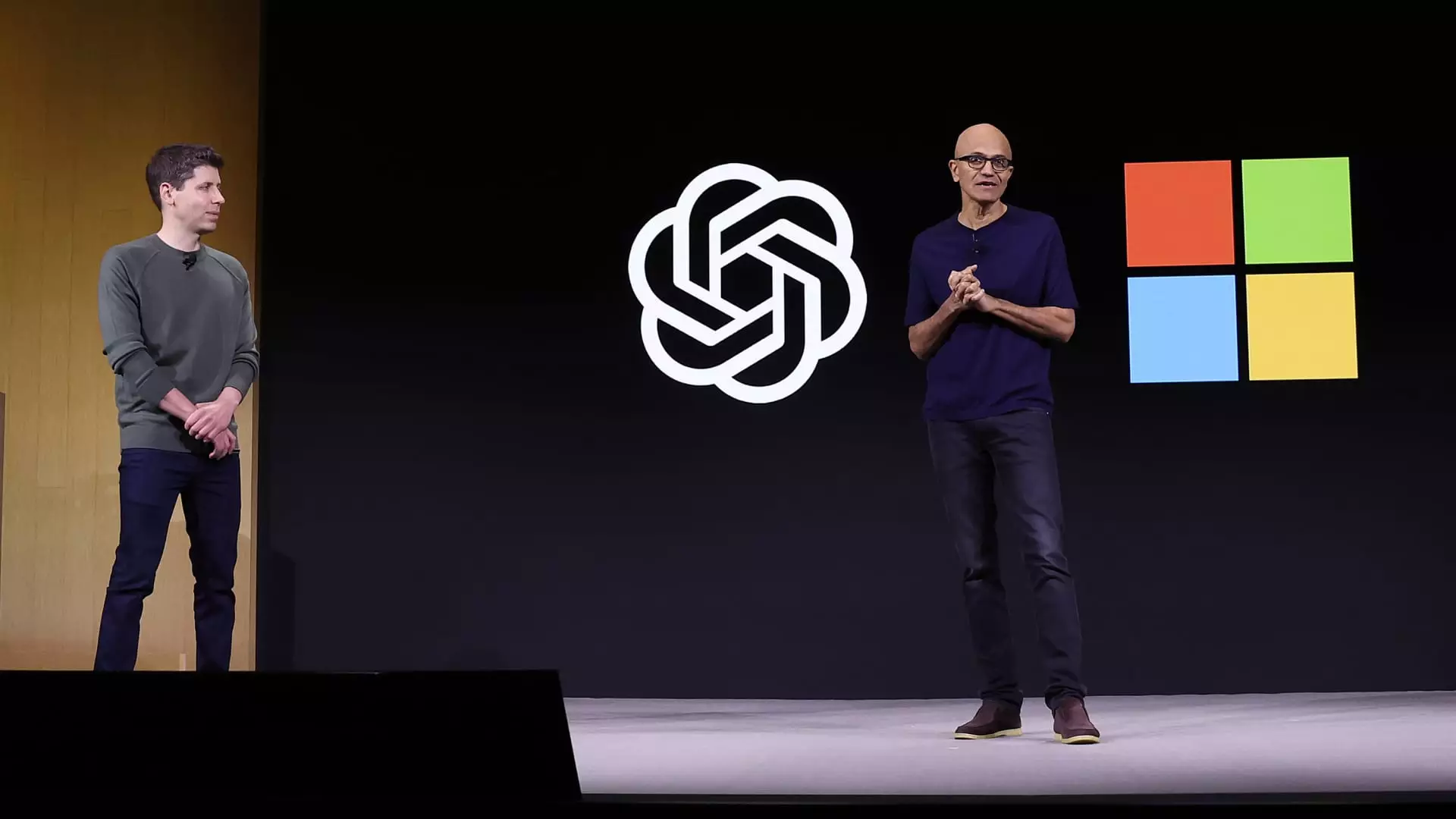Microsoft’s ambitious investment in OpenAI, nearing $14 billion, has set the stage for a complex financial narrative. Although the integration of OpenAI’s technologies, particularly the ChatGPT assistant, has fueled a burgeoning sector of generative artificial intelligence, the immediate financial repercussions of this partnership cannot be understated. During the recent quarterly earnings announcement, Microsoft’s Chief Financial Officer, Amy Hood, revealed a projected income decline of approximately $1.5 billion attributed to OpenAI’s performance. This signals a troubling juxtaposition between innovation and profitability.
OpenAI is reportedly facing staggering financial challenges, anticipating a loss of $5 billion within the current fiscal year against a backdrop of only $4 billion in revenue. This stark reality raises questions about the sustainability of such financial models, especially in a tech sector that has seen substantial investments pour into AI initiatives. The expectation of losses is alarming not merely for OpenAI but also for Microsoft, which is observing a ripple effect through its financial statements. The accounting methodologies employed here, specifically the equity method, ensure that Microsoft is directly impacted by these losses, marking a critical juncture in its investment strategy.
Despite the financial hurdles, Microsoft has strategically positioned itself as a leader in the AI space. The recent earnings report highlighted actual growth, which was overshadowed by a forecast indicating slower-than-anticipated expansion. This creates a paradox: while Microsoft has reported exceeding earnings expectations, its future outlook reflects a cautious approach to growth. Furthermore, the diversification of AI models within Microsoft’s products, such as the Copilot Chat feature, represents a hedging strategy against OpenAI’s volatility, allowing developers to integrate alternative models from competitors like Google and Anthropic.
The landscape is becoming increasingly competitive, with major players like Amazon investing heavily in AI ventures similar to OpenAI. Amazon’s substantial $4 billion investment in Anthropic highlights a trend wherein tech giants are rushing to solidify their footholds in the AI market. These competitive dynamics compel Microsoft to reassess its position continually; as rivals strengthen their capabilities, Microsoft must ensure that its partnership with OpenAI remains fruitful while diversifying risk through alternative technologies.
Microsoft’s future in AI hinges on its ability to navigate these financial intricacies while promoting innovation. The partnership with OpenAI, although currently a source of financial strain, is a vital cog in Microsoft’s growth machinery. The ability to pivot and adapt to changing market landscapes may mitigate some financial losses as the company retains its focus on developing differentiated intellectual property. As the tech industry pivots toward AI, Microsoft’s agile response to these financial challenges may ultimately determine its success in capturing the lucrative opportunities that lie ahead.



Leave a Reply